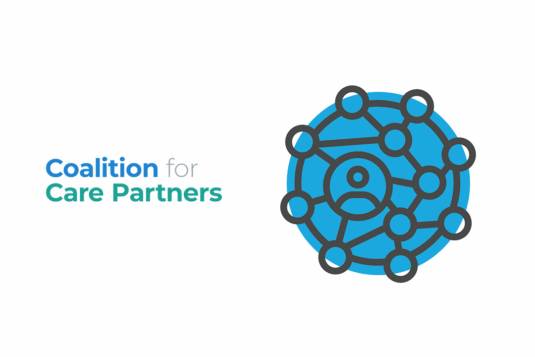This piece offers practical guidelines for documenting IPV in trauma-informed, patient-centered ways, while navigating transparency requirements under the Cures Act. It acknowledges proxy access features and risks, but focuses on how OpenNotes can be used safely to empower survivors and build trust.
Proxy Access/Caregivers
Solutions for Increased Adoption of Patient Portal Shared Access: A Human-Centered Design Approach Using the Double Diamond Model
Using a human-centered design approach, OpenNotes and researchers at the Johns Hopkins Bloomberg School of Public Health explored how to improve awareness and adoption of shared access to patient portals for older adults and their care partners.
Identifying, engaging, and supporting care partners in primary care settings: a portal-based intervention
Millions of Americans are care partners but they are rarely identified or supported in care delivery. With a portal-based questionnaire, we identified participants with caregiving responsibilities and further evaluated them in order to offer support.
Whom Should We Regard as a Legitimate Stakeholder in the Accuracy of Information in a Patient’s EHR?
This case describes a care partner who was distressed by bias and inaccuracies in a loved one’s medical notes. Steve O’Neill LICSW, BCD, JD and Catherine M. DesRoches, DrPH, MSc offer guidance on how the doctors and hospital should respond.
Which Patients With Cancer Access Their Clinical Notes? A Disparities Analysis
Although clinician notes are now available to all patients, many of the most vulnerable populations are less likely to read them. This study tracks how ethnicity, race, and language impact who is opening their notes at a high-volume specialty cancer center.
A multicenter randomized trial to improve family clinical note access and outcomes for hospitalized children: The Bedside Notes study protocol
https://doi.org/10.1002/jhm.70155 Introduction The 2021 Cures Act mandates caregiver access to their child′s medical notes with few exceptions, yet fewer than 10% access notes during hospitalization. Caregiver review of real-time notes facilitates identification of safety concerns and may enhance patient safety in pediatric hospitals. This trial will evaluate the Bedside Notes intervention—a multifaceted approach to enhance…
Issue Brief: Shared Access to the Patient Portal
This issue brief summarizes the activities and learnings of the Coalition for Care Partners around shared access. Research has spanned from 2019 to 2025, including the formation of the Shared Access Learning Collaborative. The Coalition offers recommendations for policymakers, clinical leadership, patients, and care partners.
Users’ perspectives on a demonstration to increase shared access to older adults’ patient portals
As shared access uptake remains low, the Coalition for Care Partners, and three healthcare delivery organizations, co-designed an initiative promoting shared access to the patient portals of older adults.
Identifying, Engaging, and Supporting Care Partners in Clinical Settings: Protocol for a Patient Portal–Based Intervention
This study aimed to implement a novel patient portal–based intervention to identify, engage, and support care partners in clinical settings. Early results suggest that the intervention could be an easily scalable and adaptable method of identifying and supporting care partners in clinical settings.
A Multisite Demonstration of Shared Access to Older Adults’ Patient Portals
In this quality improvement study of 16,005 patients from 3 diverse US sites, new shared access registration was unchanged; however, use of shared access functionality among registered care partners increased. Care partners logged in more frequently, viewed more laboratory results and clinical notes, and scheduled more visits after the demonstration.










